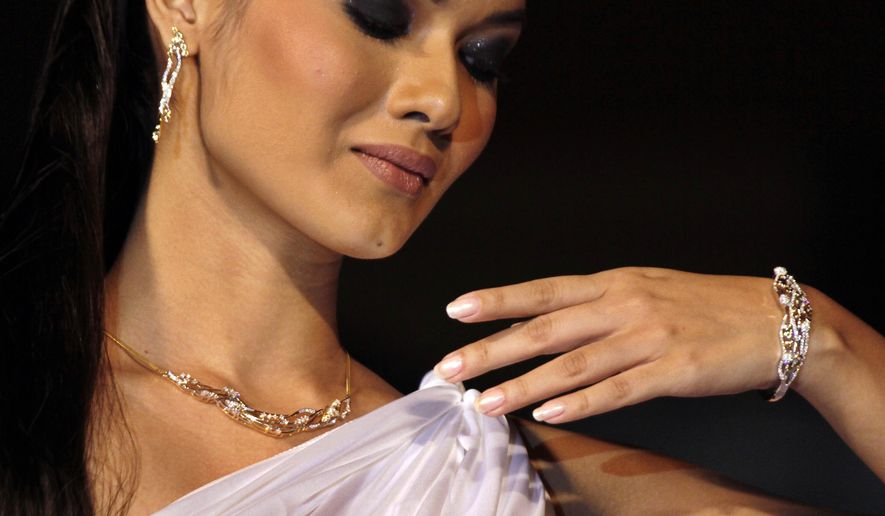NEW DELHI (AP) - The advertisement by the popular Indian jewelry brand featured a Muslim man and his Hindu wife preparing for a Hindu-style baby shower. Its tagline read: “A beautiful confluence of two different religions, traditions and cultures.”
But just days after the 45-second advertisement aired, the Tanishq brand withdrew it from TV channels and its social media platforms on Tuesday, following a backlash from Hindu nationalists, including members of Prime Minister Narendra Modi’s ruling Bharatiya Janata Party. They said the ad promoted “love jihad,” a conspiracy theory used by radical Hindu groups who accuse Muslim men of converting Hindu women by marriage.
The withdrawal of the ad drew sharp criticism from many in India who said the company was succumbing to right-wing extremists. It also shed light on the country’s growing religious polarization under Modi, whose party and supporters envision the country as a Hindu nation and are accused by critics of normalizing anti-Muslim sentiment.
Tanishq said in a statement Tuesday that the ad was meant to celebrate diversity but that it decided to withdraw it due to the “divergent and severe reactions.” It said the decision was made keeping in mind the “well-being” of the company’s employees and partners.
The jewelry brand is part of the Tata Group, one of the largest conglomerates in India.
This isn’t the first time an Indian brand has faced the ire of Hindu nationalists.
Last year, an ad for a detergent powder faced backlash after it sought to promote its brand showing Hindu-Muslim harmony. It showed a Hindu girl saving her Muslim friend from getting smeared with colored powder during the Hindu festival of Holi. The ad drew calls for a boycott and was accused of being “Hindu-phobic.”
A lawmaker from the opposition Congress party, Shashi Tharoor, who posted the Tanishq ad to his Twitter account on Tuesday, said, “Hindutva bigots have called for a boycott for highlighting Hindu-Muslim unity through this beautiful ad.”
If the ad “irks them so much,” Tharoor wrote, “why don’t they boycott the longest surviving symbol of Hindu-Muslim unity - India?”
Critics of Modi say India’s tradition of diversity has come under attack since his Hindu nationalist BJP won power in 2014. The party denies the accusation.
But an apparent mood of fear, anger and disenchantment is growing among ordinary Indian Muslims, who say Modi and his party are slowly disenfranchising them, leaving the community reckoning with a future as second-class citizens. At the heart of this feeling are the policies and rhetoric of Modi’s party and some of its leaders who have publicly given hate speeches against Muslims.
India is a predominantly Hindu country, with Muslims making up about 14% of its 1.4 billion people.




Please read our comment policy before commenting.